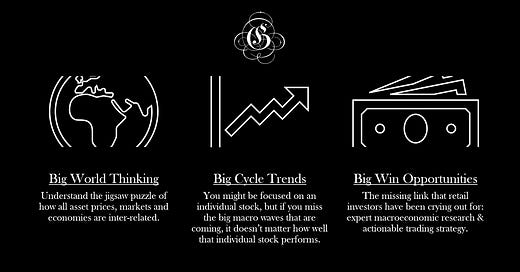Let's talk about China.
Both Chinese imports and exports crashed in November - the economy has grown at just 3% through the first three quarters. That's a fraction of its long-term average growth of the past two decades.
Now after the recent social uprising against the Chinese Communist Party's Zero-Covid policy, and related lockdowns, the government has announced an easing of restrictions.
If it's true*, what will it mean for markets/the global economy?
*my thought: a communist party doesn't come up with a 20 point reopening plan overnight. It’s likely to play out as a “two-step-forward, one-step-back” process.
Will it be inflationary? Keep in mind, this comes just as global central banks have, seemingly, hit the pain threshold for the level of interest rates. And, in particular, in the U.S., just at the time inflation data is cooling (if not reversing).
A fully functioning Chinese economy is obviously positive for global demand and it should be especially positive for global supply (given the export nature of the economy).
On that note, the global central bank tightening campaign doesn't have the tools to deal with, what has been, supply shocks. What they do have the tools to address is demand - they have explicitly been working to bring demand down to the level of supply.
With that, an opening up of China can help address the supply side of the imbalance. And we should note that China has been an exporter of deflation for the past two-plus decades (i.e. they put downward pressure on global goods prices).





